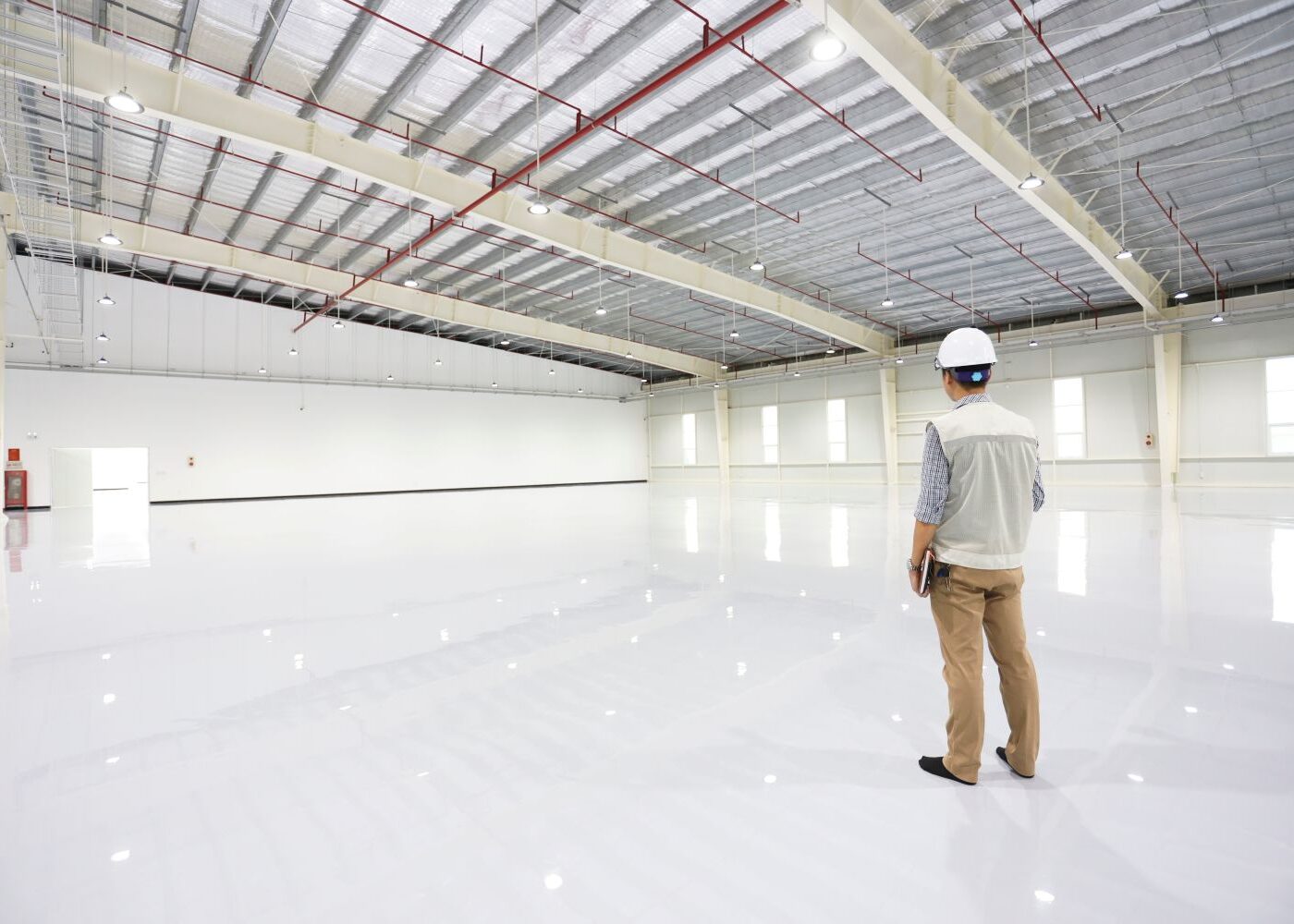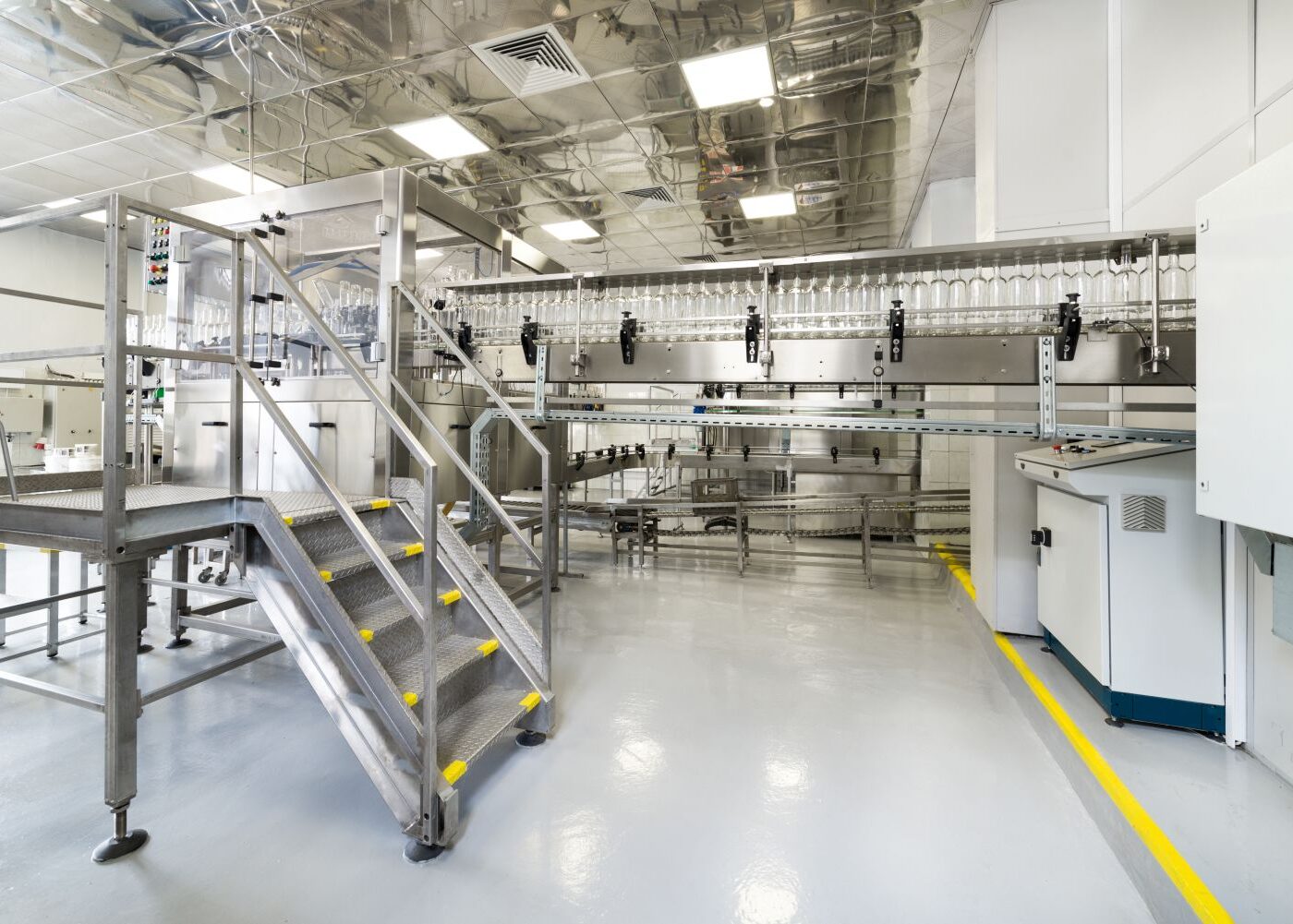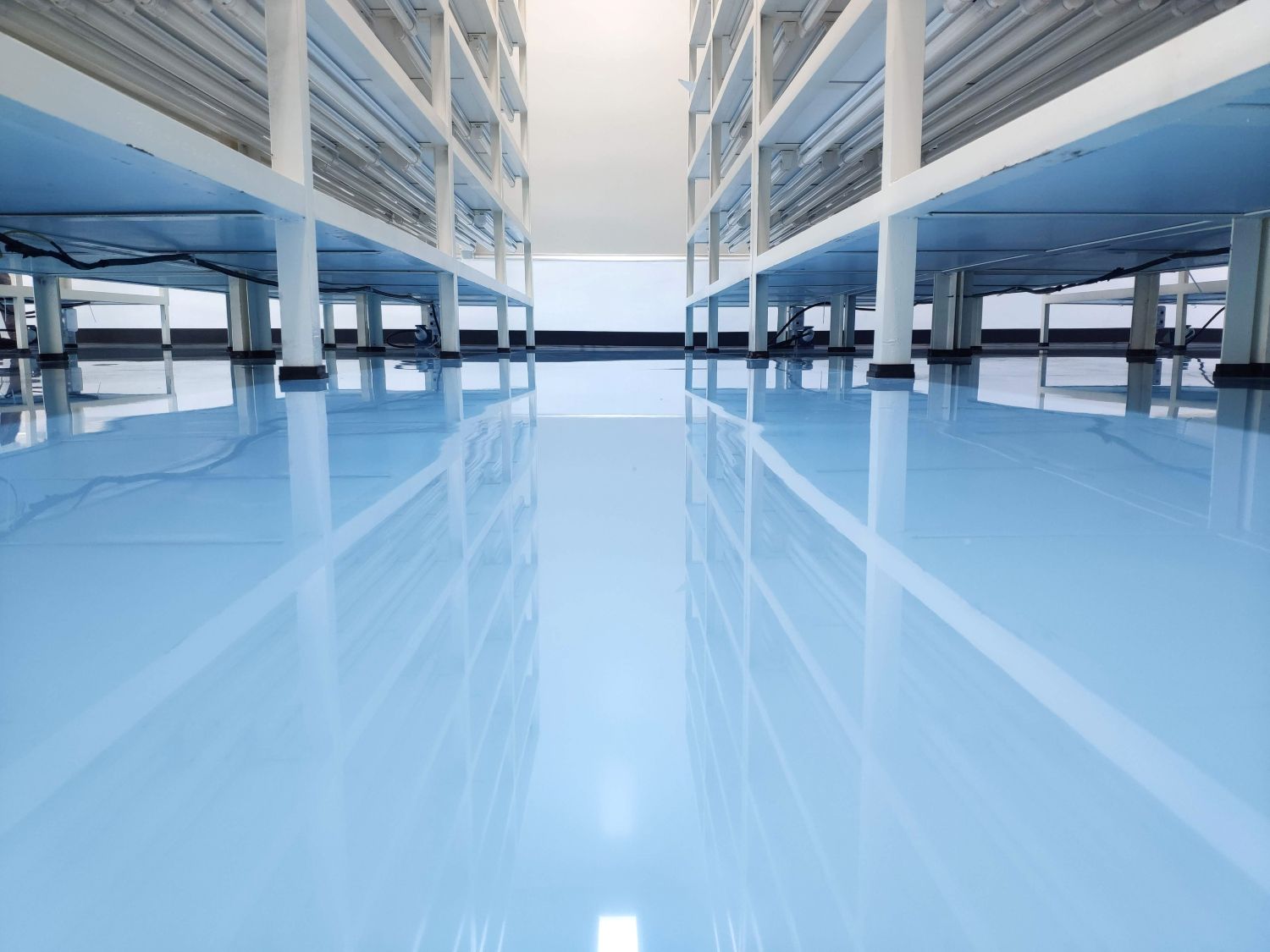What Are The Pros And Cons Of Resin Flooring?
Resin flooring has become a popular choice across industrial, commercial, and pharmaceutical environments thanks to its durability, seamless finish, and wide range of customisation options. Whether you manage a busy warehouse, oversee a commercial property, or are planning a specialist installation, resin offers a practical and long-lasting solution. However, like any flooring system, it comes with considerations that are worth understanding before you commit. This guide explores the key advantages and potential drawbacks of resin flooring to help you decide whether it is the right fit for your space, budget, and long-term performance requirements.
As experts in installing epoxy resin floors in many settings, we are well-placed to provide a breakdown of the pros and cons of resin flooring. If you’re looking to install a resin floor, please feel free to contact us and discuss your project.

Advantages Of Resin Flooring
The benefits of epoxy coatings include the following:
Price
Resin is a cheap material. As a derivative of plastic, it has a very simple method of manufacturing and is relatively fast to install. Cost-effectiveness is a key appeal of resin floors and makes them suitable for large spaces such as warehouses.
Additional layers, such as sealants and protective layers that are skid-resistant, will add to the price of the installation. However, at the base level, resin is a very cheap material.
Durability
Once the resin hardens, it is extremely firm. Thicker floors can withstand almost constant use from heavy vehicles, which makes them useful for garages. Forklifts are another potential vehicle that is suitable for use on a resin floor.
The durability means resin can withstand shocks and impacts, such as from accidental drops or spillages. If a floor has foot traffic, then resin is a good option as it will not wear down over time, even with constant use.
Lifespan
There is little point in installing a new floor if it is going to need replacing shortly after – or if damage occurs. Epoxy resin flooring is an exceptionally long-lasting type of floor, which can exceed 10 years even with constant use.
Because it lasts so long, resin flooring is a good investment, which is why they are so popular for commercial and industrial spaces. Proper sealants and protective layers can increase the lifespan further.
Hygiene and Easy Maintenance
Resin flooring is highly hygienic thanks to its seamless, non-porous surface that prevents dirt, bacteria, and contaminants from settling. Easy to clean and resistant to harsh chemicals, it is an ideal choice for pharmaceutical facilities and food-safe environments where strict hygiene standards are essential.
Chemical and Stain Resistant
Resin flooring is formulated to withstand exposure to oils, chemicals, spillages, and cleaning agents without deteriorating. Its non-porous finish prevents staining and surface damage, making it a reliable choice for factories, warehouses, and food processing facilities where durability and cleanliness are essential.
Customisable Design Options
Resin flooring can be tailored to suit any environment, offering a wide range of colours, finishes, textures, and decorative effects. It can even incorporate branding, safety markings, or zoning. This flexibility allows you to create a practical yet stylish space that reflects their operational or design needs.

Disadvantages Of Resin Flooring
The drawbacks of epoxy coatings include the following:
Slippery when wet
Without installing an additional skid-resistant layer, a resin floor is slippery when wet. This can be a challenge for health and safety regulations and increase the risk of accidents in the workplace.
However, you can add anti-slip resin coatings to easily fix this issue.
Cracking and uneven layers
While our talented team guarantees a smooth and even floor, many installations can result in a slightly uneven surface that is prone to cracking. Any inconsistency in pouring will undermine the integrity of the surface.
Cracking is not just cosmetic; it can cause the substrate below to receive damage and will make it possible for chemicals, moisture and other substances to seep into the surface.
This is why it is so essential to rely on experienced resin floor contractors who will guarantee you a safe and lasting installation.
Ultraviolet sensitivity
A resin floor can react to ultraviolet light from the sun, which will affect the look of the surface. This is a particular issue for outdoor spaces, such as garages and driveways.
A protective layer of ultraviolet sealant is necessary to protect the resin from light. This will maintain the appearance of the floor and prevent it from absorbing any rays and reacting to sunlight.
GET STARTED ON YOUR RESIN FLOORING PROJECT
Resin flooring offers impressive durability, hygiene, and design flexibility, but it is important to weigh its limitations before choosing the best system for your space. If you need expert guidance or a tailored quotation, contact Concrete Flooring Solutions today.
Contact Us for a Bespoke Quote
Our team has experience with all types of resin flooring. If you would like to get a quote for your project, please contact us.


